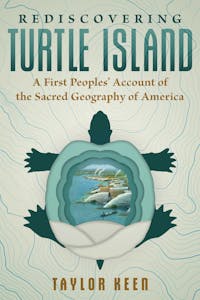• Examines the complexities of Indigenous legends and creation myths and reveals common oral traditions across much of North America
• Explores the history of Cahokia, the Mississippian Mound Builder Empire of 1050-1300 CE, told through the voice of Honga, a Native leader of the time
• Presents an Indigenous revisionist history regarding Thomas Jefferson, expansionist doctrine, and Manifest Destiny
While Western accounts of North American history traditionally start with European colonization, Indigenous histories of North America—or Turtle Island—stretch back millennia. Drawing on comparative analysis, firsthand Indigenous accounts, extensive historical writings, and his own experience, Omaha Tribal member, Cherokee citizen, and teacher Taylor Keen presents a comprehensive re-imagining of the ancient and more recent history of this continent’s oldest cultures. Keen reveals shared oral traditions across much of North America, including among the Algonquin, Athabascan, Sioux, Omaha, Ponca, Osage, Quapaw, and Kaw tribes. He explores the history of Cahokia, the Mississippian Mound Builder Empire of 1050–1300 CE. And he examines ancient earthen works and ceremonial sites of Turtle Island, revealing the Indigenous cosmology, sacred mathematics, and archaeoastronomy encoded in these places that artfully blend the movements of the sun, moon, and stars into the physical landscape.
Challenging the mainstream historical consensus, Keen presents an Indigenous revisionist history regarding Thomas Jefferson, expansionist doctrine, and Manifest Destiny. He reveals how, despite being displaced as the United States colonized westward, the Native peoples maintained their vision of an intrinsically shared humanity and the environmental responsibility found at the core of Indigenous mythology.
Building off a deep personal connection to the history and mythology of the First Peoples of the Americas, Taylor Keen gives renewed voice to the cultures of Turtle Island, revealing an alternative vision of the significance of our past and future presence here.
